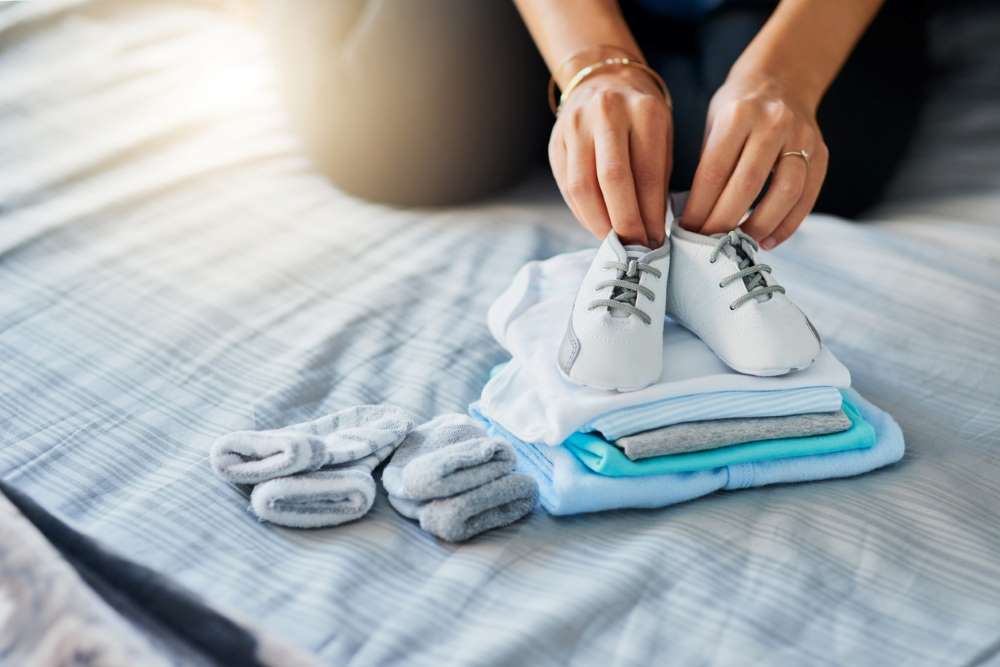
Once parents receive their bundles of joy, one of the first things on their minds is figuring out how to raise their child. Some will want to be as careful as possible and plan every step ahead. One such stage in a baby's life is buying shoes for them. There are many factors that come into play when trying to choose the best pair for your little one. This article will explain those factors so that you can pick out just what you need and want for your child's feet and ankles.
Why you should buy baby shoes at all
There are some countries where it is not necessary to buy any type of footwear at all; however, most places require shoes or boots. It doesn't matter where you live; however, it is a good idea to purchase something for their feet. First of all, there are always going to be times at the doctor's office or other places that will require socks and shoes. Even if your child isn't walking yet, there may be instances during which they need protection from the elements. In addition, these shoes can help protect their feet from potential injury as well as infection from germs on surfaces that may have been touched by others' shoes that have not been washed recently. Baby shoe retailers from attiandanna.com.au also add that shoes are crucial for encouraging the healthy development of babies’ feet. As babies start to learn to walk, their feet need protection and support to help them take their momentous first steps.
What makes a great shoe?
There are a few factors to consider when choosing a shoe for your little one's developing foot. These factors include but are not limited to the sole design, material, and flexibility. The sole design is important because it will determine whether the shoe is flexible or rigid and how much traction your baby's feet will get. The material that it is made of can also affect this as some materials allow for better airflow than others. Of course, there are many more factors but those are just some to start with.
Some things you need to be aware of when buying shoes?
There are many types of baby shoes available on the market today; however, some may not provide adequate protection compared to others depending on what they are built for. For example, cloth slippers will not do anything for an infant if they fall down because they have no sole allowing them to grip onto surfaces. In addition, there are some shoes that will have no soles at all and they may not be made for walking on. Some of them may only cover the top half of the baby's feet so it is important to choose wisely according to your needs.
What you need to know about sizing
When buying shoes for a baby it is important to watch out for poor fitting because if they do not fit properly then the child will not enjoy wearing them which can cause problems with their movement down the line as well as potential injury. Another thing to consider is that many times babies who walk early tend to grow very quickly therefore you might need different sizes even within one month period. In this case, opt for adjustable shoes as those tend to have more longevity.
Slip-on shoes
For infants, slip-on shoes are perfect since they are easy to put on without any help from adults. They are available in both soft-soled versions as well as hard soled versions. For babies, you should look for non-slippery soles, which are smooth enough not to cause any problem while walking but still textured enough not to allow slipping during normal wearing of these shoes. You should buy infant slip ones that have adjustable fasteners at the ankle because infants' feet change size very quickly.
Slip-on shoes are also available in hard-soled versions for older infants who are able to walk already. These shoes should not be too tight or loose for the baby but still, they mustn't be hanging because they can trip up your child and cause accidents.
Prewalker shoes
Prewalker shoes are the ones that come just after the infant shoes. They are used by infants that are not able to stand or walk on their own, but they have already gained enough strength to hold up their heads while being supported. They are also for babies who have reasonable control of neck muscles and can push up their backs, but cannot yet sit upright without support. Prewalker shoes should fit well, not be too tight or loose around the baby's feet. The top strap should always be fastened even if it's a little bit loose since this will prevent chafing of ankles which is quite common in front openings.
While you buy pre-walker shoes make sure the soles don't have any abrasive parts or sharp edges - these parts can be quite harmful to babies. The best material for baby pre-walker shoes is soft suede or leather - this will prevent abrasions and rashes that baby's skin often develops when in contact with a harsh surface.
There are many different factors that you need to consider when buying your infant's shoes. You should choose a sole design that best suits their needs as well as a material that will provide them the most comfort. Make sure they fit properly and always keep an eye out for potential injury from poorly fitting footwear. These tips will help you purchase the perfect pair of shoes for everyone's enjoyment!



























